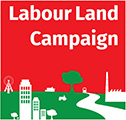The case for a tax on land
I believe Harriet Walker’s column (“What about some land for the poor”, 11 November) makes a wrong assumption. The kind of “landowners” she mentions may be from families which have occupied the land for centuries, but in theory most no longer have ownership, which is usually vested in a complicated trust in a murky foreign tax haven. The people regarded socially and in other ways as very wealthy owners are not so for tax purposes.
This country has enough tensions at present without any polarising allegations of “Mugabeism” which would be raised against sharing the land out as she suggests. A more productive approach would be to tax land more directly.
An average of £2 per acre on the undeveloped value of the land in Britain would bring in about £12bn per year. Mayfair acres would be charged more than moorland ones and exemptions could be set at any level you like so that average householders and hill farmers are not unduly hobbled. We already have a Valuations Agency, so introducing such a tax would be relatively simple. It would be payable by the owner, not the renter, and collecting in one lump from the owner of 50 farms is obviously easier than collecting individually.
The proceeds could be used for reducing debt or taxes which discourage productive effort, or preserving capabilities such as sea power or services such as hospitals, but the twin advantages of a land tax are that it is reliable, which would please bond-holders, and it is unavoidable, even for oligarchs, sheikhs, other monarchs and those who regard themselves as the backbone of the country, except where taxes are involved.
It would also be fair in that it would be an asset which has been greatly increasing in value with no effort by those who benefit, and which will continue to do so, because of public subsidies and the ever-increasing demand for food. Lastly, it might help demonstrate that we really are all in this together.
John Kennett
South Warnborough, Hampshire
